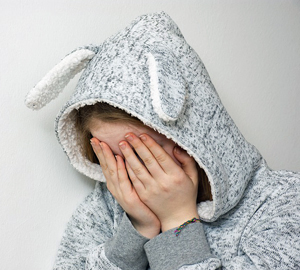Anxiety in children
Anxious children and young people
 Anxiety
in children can develop from a very young age. How it manifests in children and young people covers a broad range of symptoms. Things like clingyness, withdrawal, anger, defiance, tantrums, avoidance of people and places, sleeping difficulties, nervousness, restlessness, unable to concentrate, crying, having many fears, sore tummies, changes in eating or toileting and so on. The list is long. Children and young people can also develop seperation anxiety, school refusal, panic attacks and social anxiety.
Anxiety
in children can develop from a very young age. How it manifests in children and young people covers a broad range of symptoms. Things like clingyness, withdrawal, anger, defiance, tantrums, avoidance of people and places, sleeping difficulties, nervousness, restlessness, unable to concentrate, crying, having many fears, sore tummies, changes in eating or toileting and so on. The list is long. Children and young people can also develop seperation anxiety, school refusal, panic attacks and social anxiety.
Understanding anxiety
To put it in perspective it is important to recognise that everyone suffers from some anxiety. Everyone needs to be able to tolerate low levels of such emotions in life. Anxiety and fear are emotions that serve the purpose of keeping us safe from harm. It is normal to be worried and on high alert if there is a real danger - like being chased by tigers. But if a young person is always worrying about something, or lots of things, then it is not turning off and they have too much of it.
Some children develop their own positive ways to cope while for others it becomes a problem. For example – one young boy read all the time as his way of dealing with his worries while another one just got angry with everyone in the family and constantly had tantrums.
When to seek help
How do you decide when to seek professional help? When anxiety becomes out of balance and interferes with a child’s every day functioning at home and school then it has become a problem. It can affect learning at school and a child’s social world. When this happens it is important to seek some help before anxious patterns of behaviour become entrenched.
Treatment for anxiety
Sometimes parents can learn strategies and ways to help their child or young person with their anxiety by having a session with a child & adolescent psychotherapist. Other times it is best if the child has some individual sessions to learn ways to reduce their anxiety and develop positive ways of coping. Sometimes it is a combination of the two. The important thing is to seek help early to prevent this impacting on a young person's development and quality of life.
Treatment for anxiety will often include things like education about stress, calm breathing, relaxation for children, mindfulness, as well as many other helpful techniques. These tools are enormously helpful to all children coping with everyday stress and pressure in the world.
See also Angry kids, Autism & Asperger's, Behaviour problems, Blended families, Bullying, Self-harm, or Teenage depression
